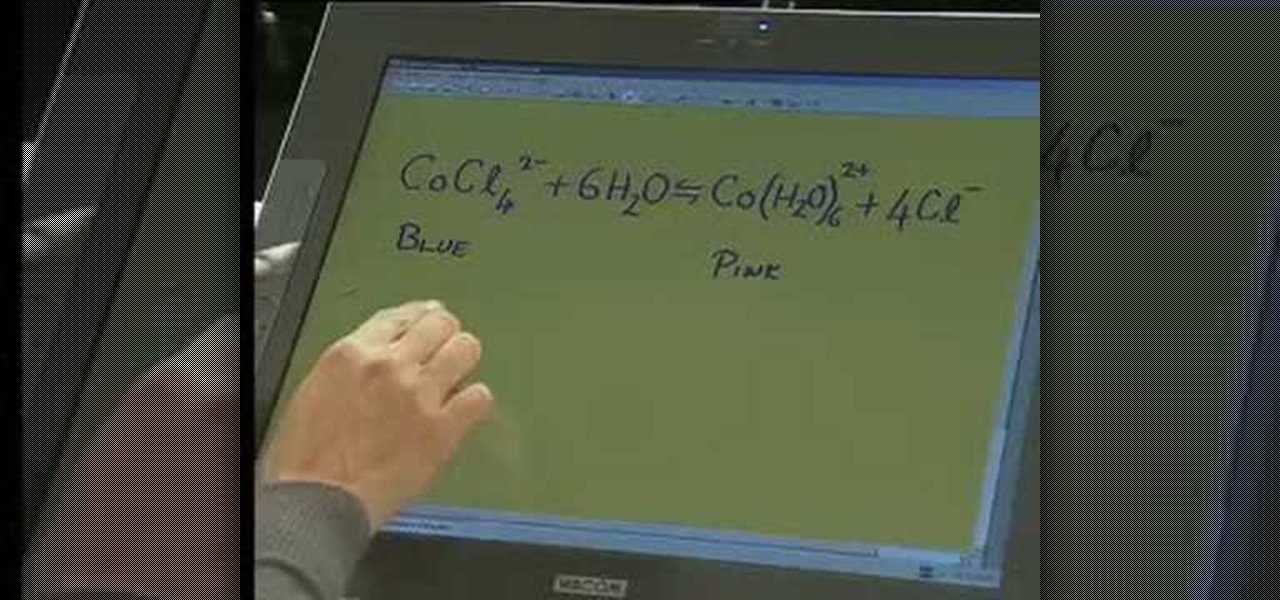
How To: Understand chemistry & chemical equilibrium
A video which shows a reaction in which cobalt chloride reacts with water to form a hydrated form of cobalt and chloride ions.


A video which shows a reaction in which cobalt chloride reacts with water to form a hydrated form of cobalt and chloride ions.
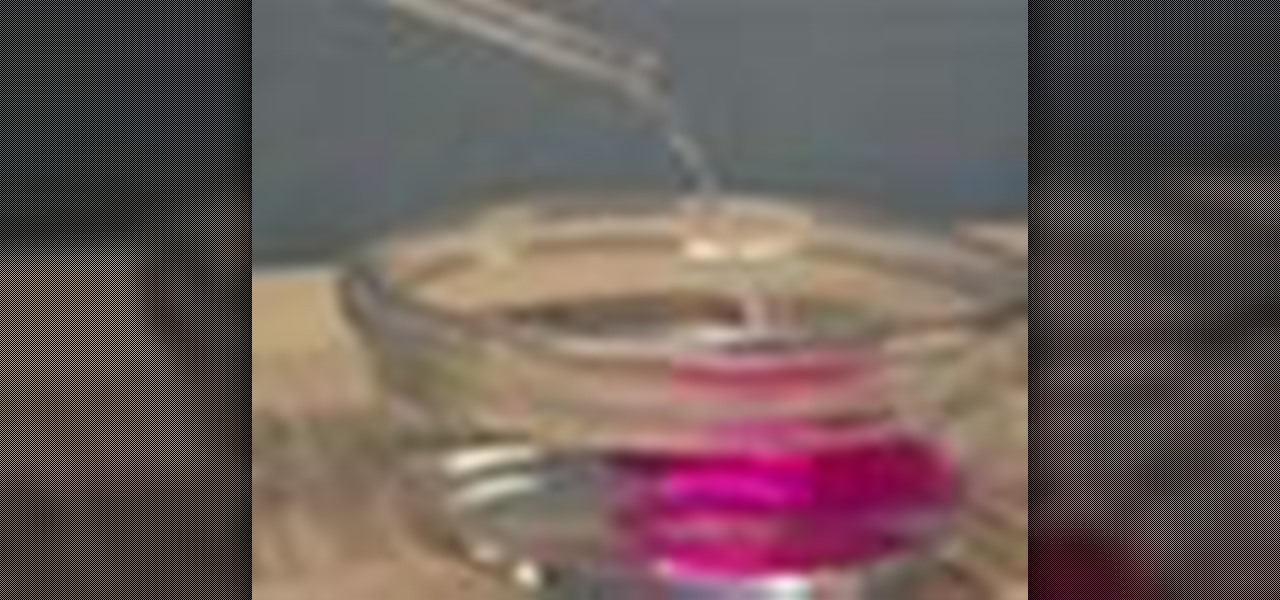
One fun way to hide your secret messages and also amaze your friends is to make your own form of disappearing ink! You will need some chemicals though, and with chemicals make sure you either have a parent present and/or have the proper safety equipment! In this video you will learn how to create the ink, use it and make the message come back.
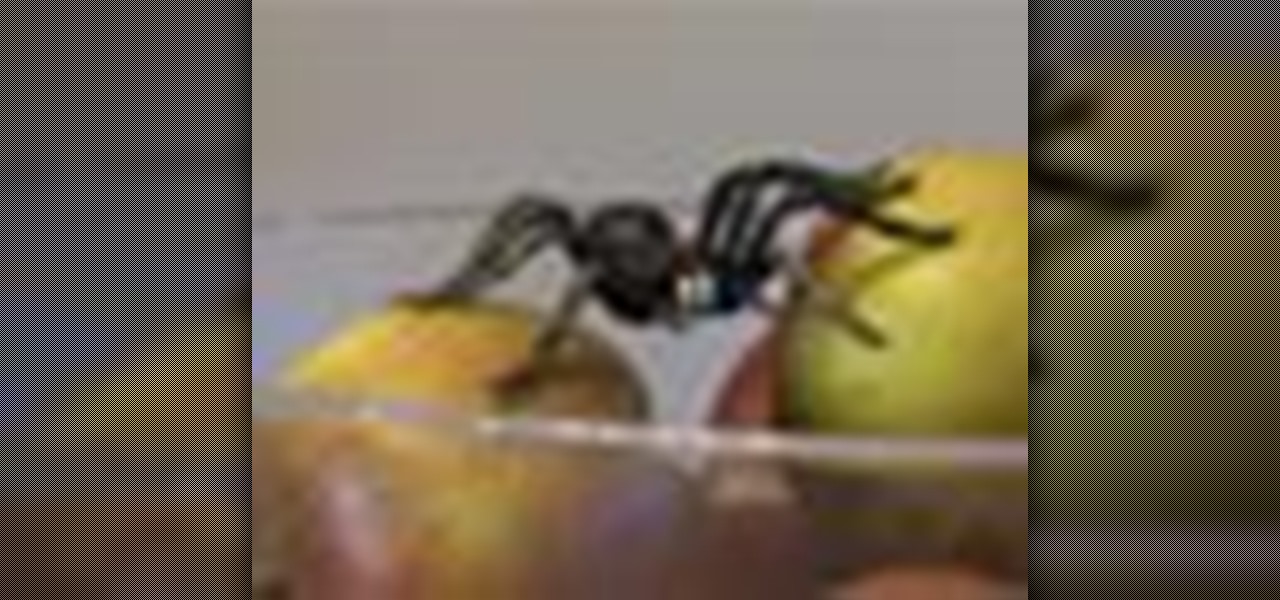
In this how-to video, you'll learn how to get rid of spiders without resorting to harmful chemicals or pesticides. It's easy enough. Just vacuum them up, remove the cobwebs when you see them, and use eucalyptus and hedge apples. This will force them out.
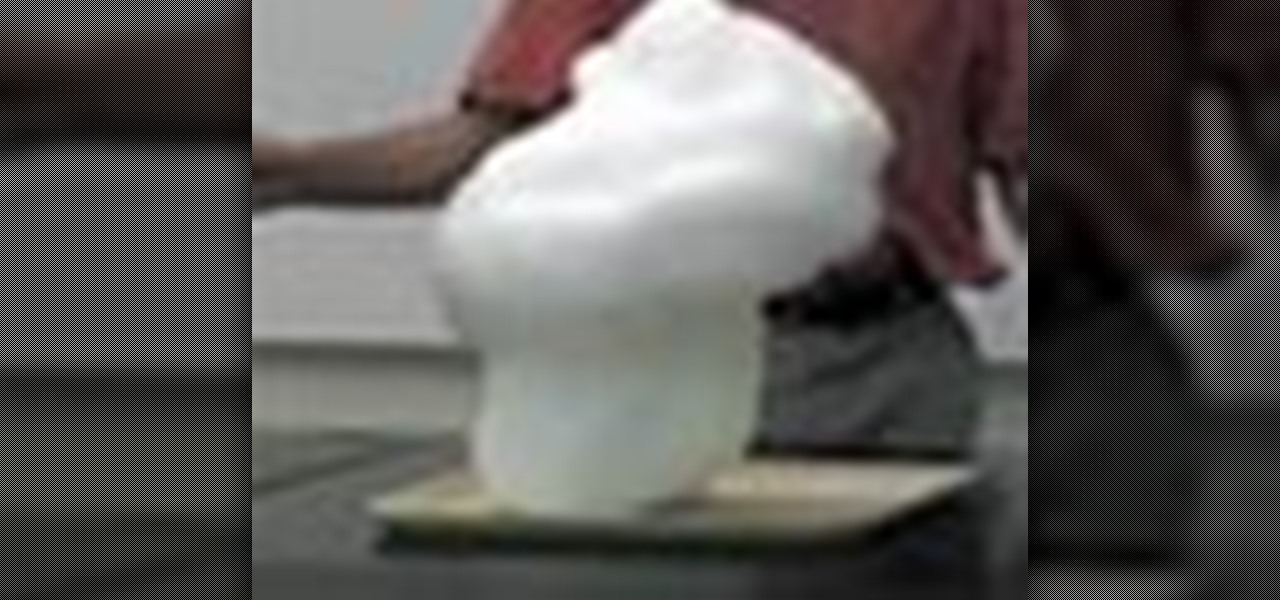
Making a Elephant Toothpaste Volcano!
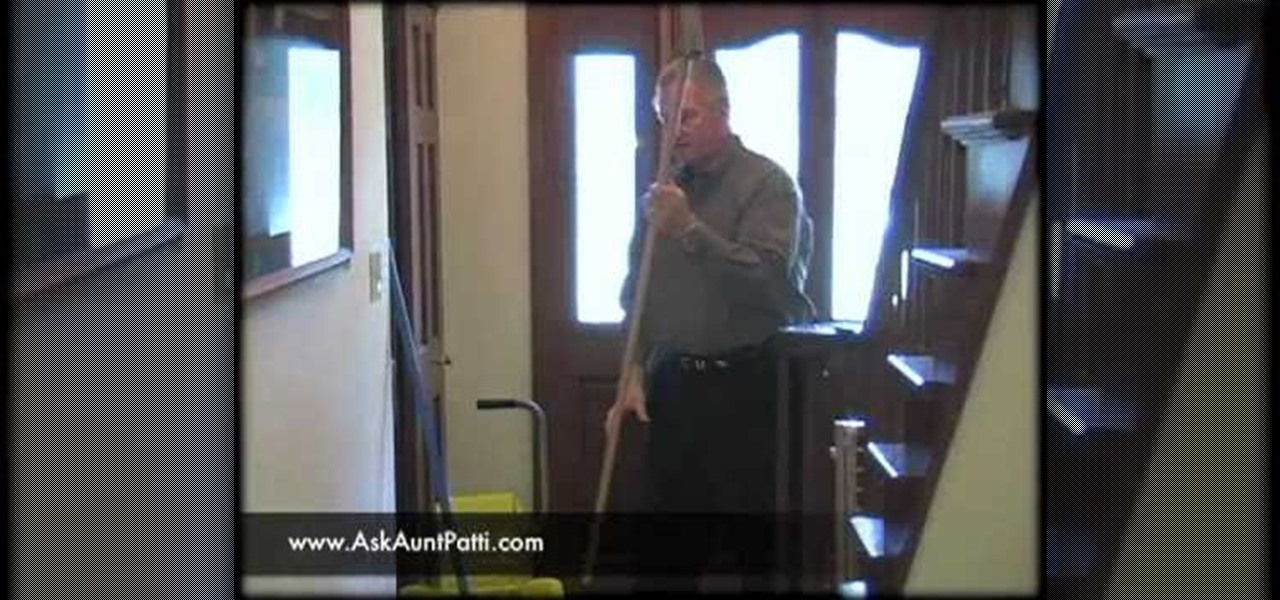
In this video Rich explains how to maintain a grout and tile floor. He uses a chemical cleaner which he describes as a "grout-smart type product." For regular maintenance of the floor Rich recommends using only 1oz of the product per gallon of warm water but for really badly stained floors using up to 12oz per gallon of warm water. Rich mixes the chemical into his water then applies the mixture to the tile using an ordinary deck scrubber, he then uses an angled scrubber which has bristles tha...

This science experiment will show you how to turn a penny into gold with common chemicals. This video tutorial will demonstrate turning the copper penny into a silver penny and into a gold cent. All you need to make gold pennies is sodium hydroxide (also known as lye), zinc powder, a small glass beaker with some distilled water in it, a clean copper penny, a couple of measuring spoons, and a glass stirring rod.

Watch this piano tutorial video to learn how to play "Welcome to the Black Parade" by My Chemical Romance on the piano. Instructions include the scales and key signatures and chord breakdowns. Beginners and intermediate pianists will be able to learn how to play My Chemical Romance's "Welcome to the Black Parade" by watching this helpful how-to video.

Watch this piano tutorial video to learn how to play the introduction of "Welcome to the Black Parade" by My Chemical Romance on the piano. This little melody is easy enough for beginners. Pianists of any level will find this video helpful in learning how to play the intro of "Welcome to the Black Parade" by My Chemical Romance on the piano.
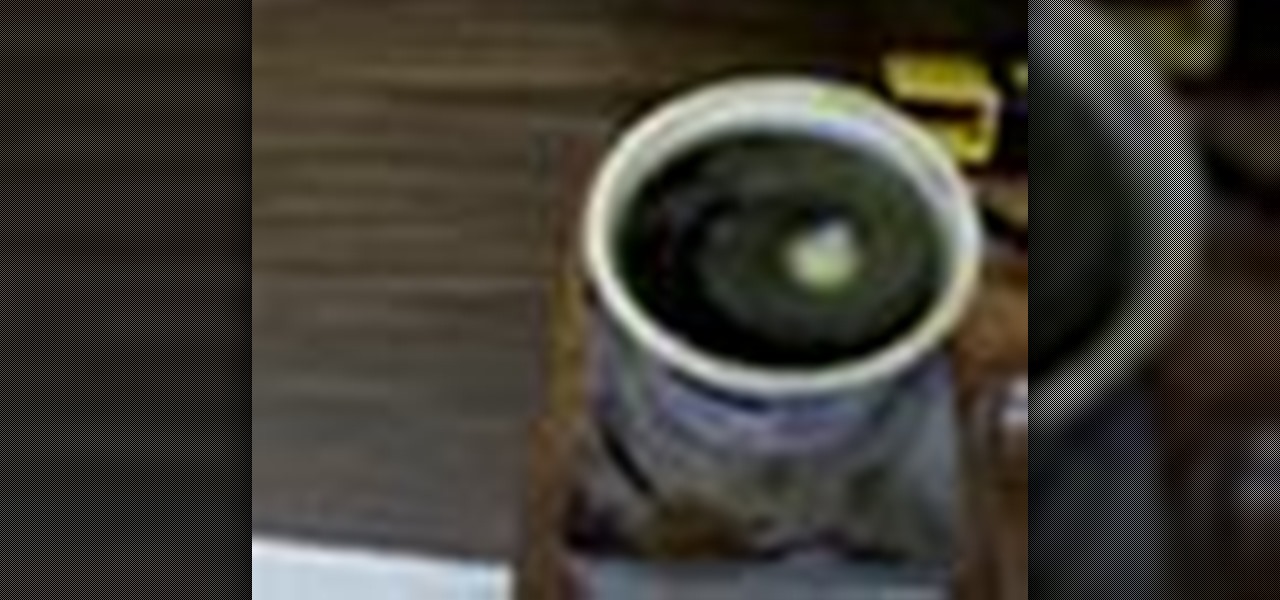
Learn how to make nitrogen triiodide (NI3), the main ingredient of the small, paper-covered parcels that you throw at the ground to make a snapping noise, with household chemicals and items. This chemical is very unstable, so please exercise caution.

It’s time for science. You are able to calculate the molar mass for a compound using the periodic table and the amount of compound involved. You might need to know this in your everyday life but you will definitely need this in a chemistry class.
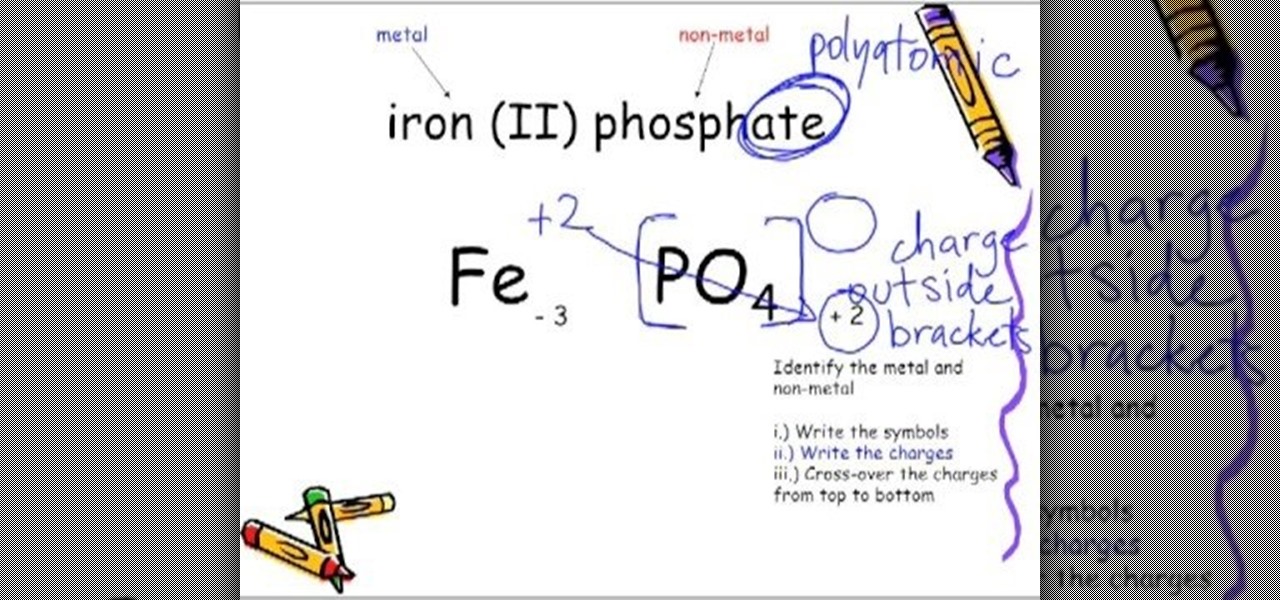
This is a video tutorial in the Education category where you are going to learn how to understand polyatomic chemical formulas. When writing the formula using polyatomics, the same cross-over rule applies. 1st identify the metal and non-metal. Then you write the symbols, write the charges, cross-over the charges from top to bottom, remove the charge and simplify the numbers and remove the 1s. for example, iron (II) phospahate. The "ate" ending implies that phosphate is polyatomic. The symbol ...
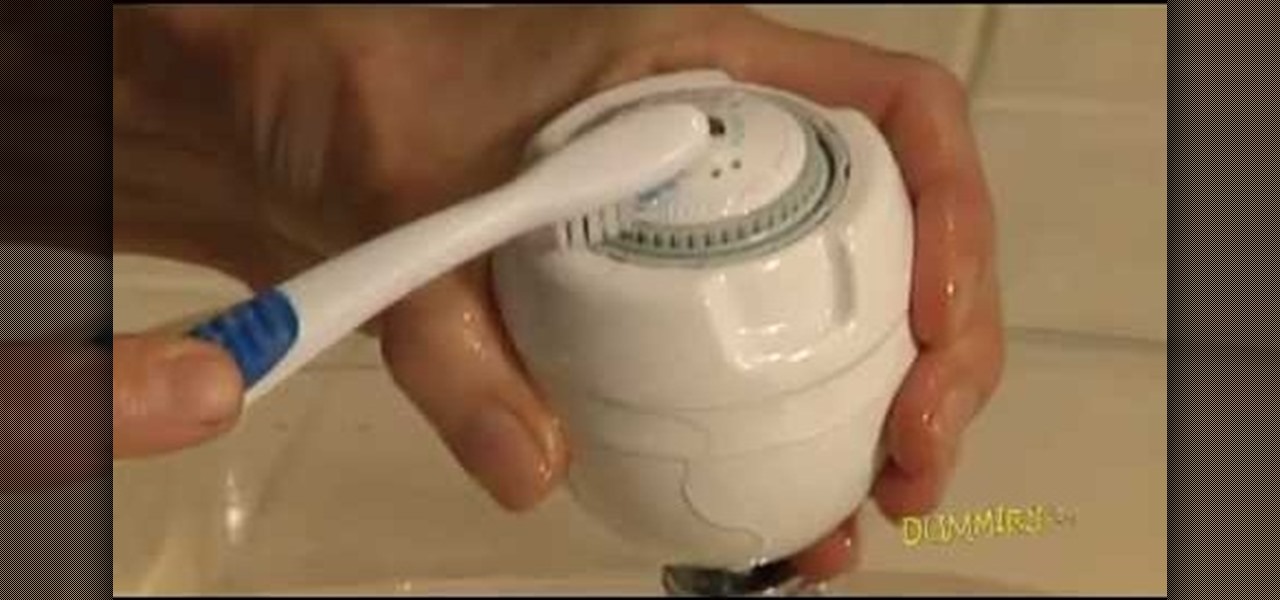
We all want to spic and span our kitchen countertops, our tile floors, and our bathrooms. But for the most part we can bet you've been unwittingly using storebought detergent cleaners or bleach. While these cleaners are in fact excellent at removing grime and buffing your dirty floors to a Midas touch perfection, they also come filled to the brim with known cancer-causing agents, synthetic chemicals, and other gnarly, hard to pronounce crap.
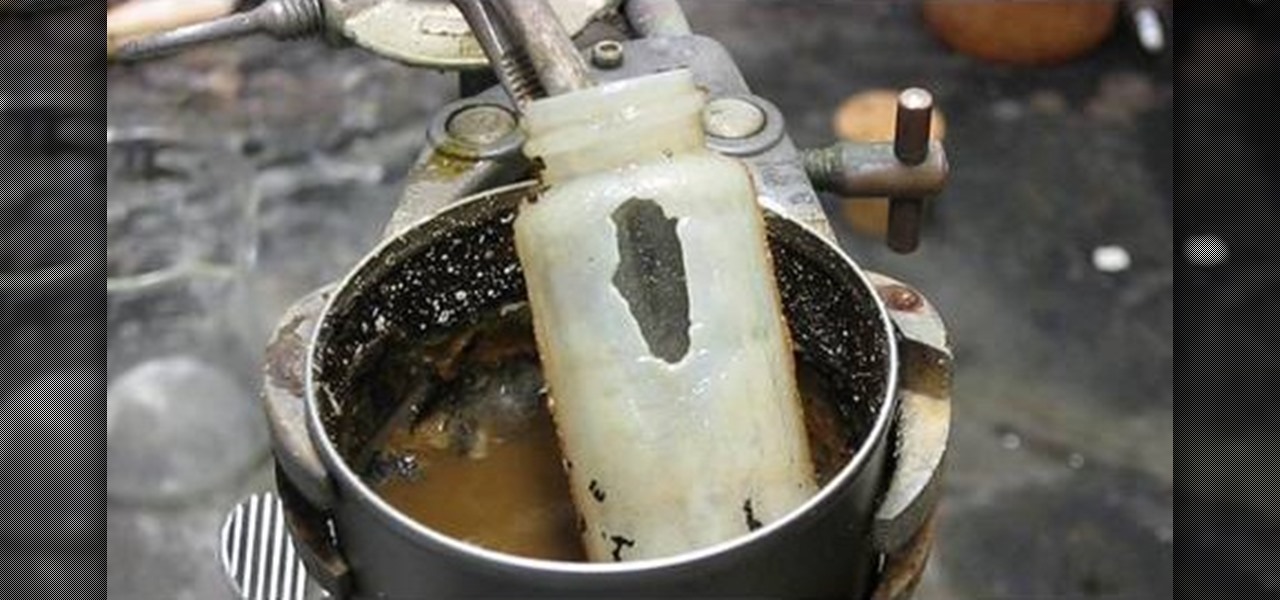
Watch this science video tutorial from Nurd Rage on how to dissolve glass with drain cleaner. They show you how to dissolve that glass with sodium hydroxide (drain cleaner).
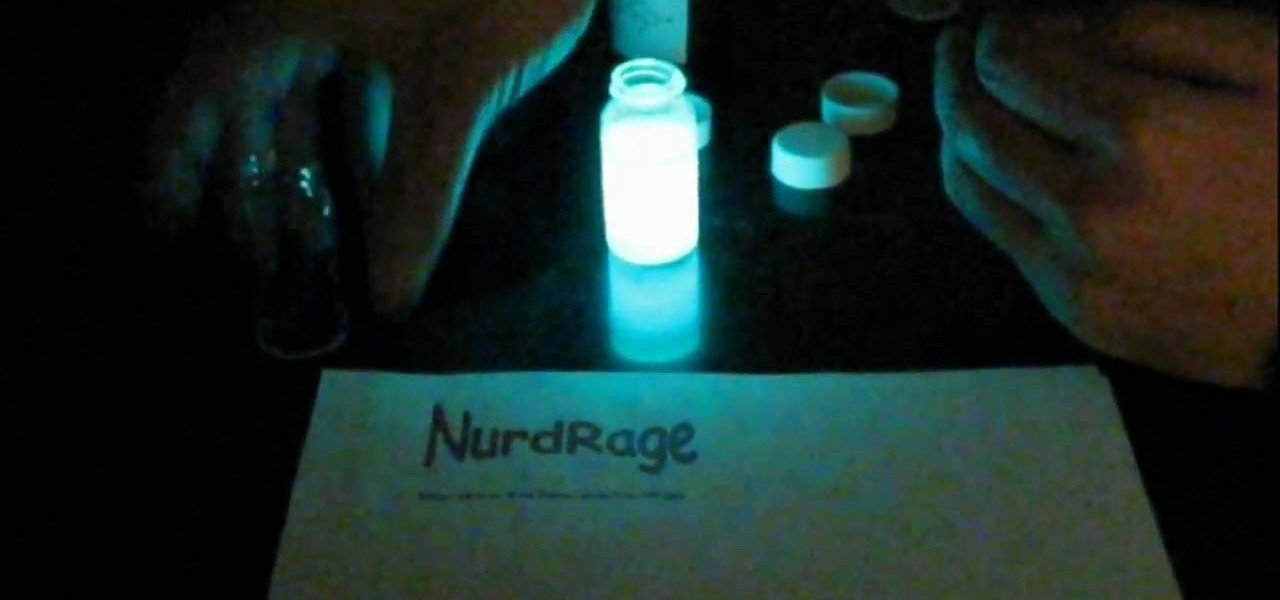
Watch this science video tutorial from Nurd Rage on how to make a glow stick reaction with real chemicals.
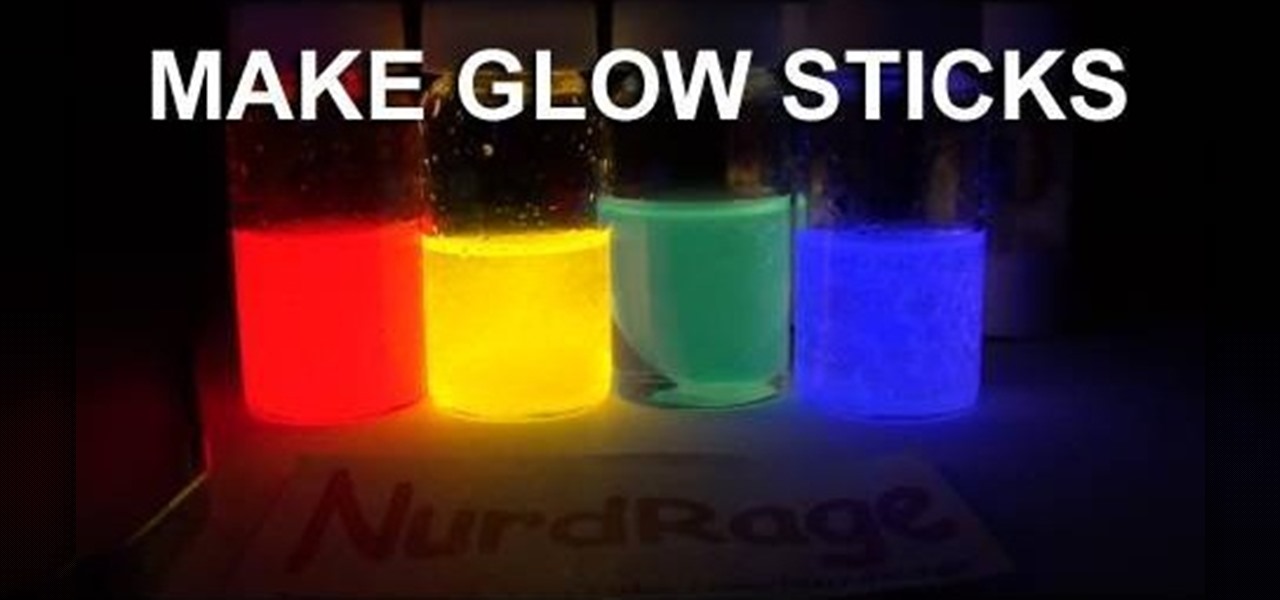
If you prefer glow sticks over candles during a power outage, then this how-to is for you! Although glow sticks are used as temporary light sources, there are other applications for them. Divers use them for night diving, fisherman use them to catch swordfish, and the military uses them for light markers, along with infrared versions used in conjunction with night vision devices. But with all these handy uses for glow sticks, the most popular is — recreational use, like dancing at raves, some...
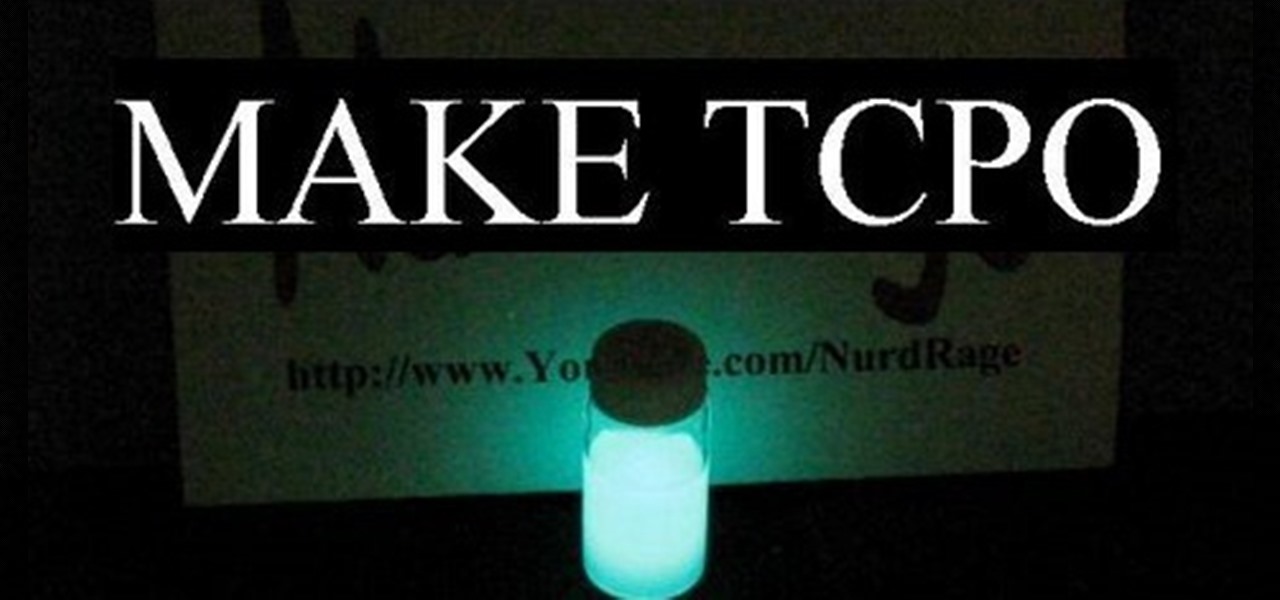
How to make TCPO or bis(2,4,6-trichlorophenyl) oxalate, used in glow stick reactions. WARNING: This procedure should only be performed by, or under the direct supervision of, an experienced chemist. Please refer to the material safety data sheets of all chemicals for their hazards. Synthesis must be performed in a fumehood.
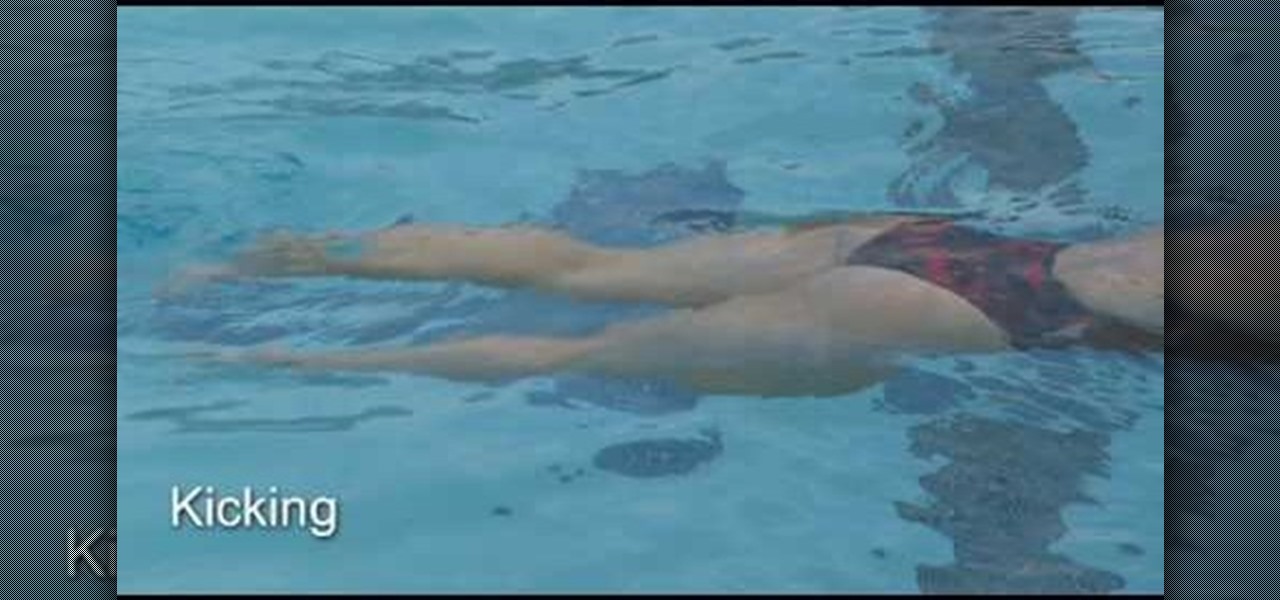
New techniques may improve a swimming pool workout from Masters coach Nancy Kirkpatrick Reno. Before sticking a toe in the water, consider this advice: * Swim in a pool that's at least 20 to 25 yards long; those pools can usually be found at high schools and some gyms. A 50-meter Olympic-size pool is best, but not everyone has access to that. "If you're going to become a lap swimmer," Kirkpatrick-Reno says, "you can't go any shorter or you'll be constantly turning." An outdoor pool is prefera...
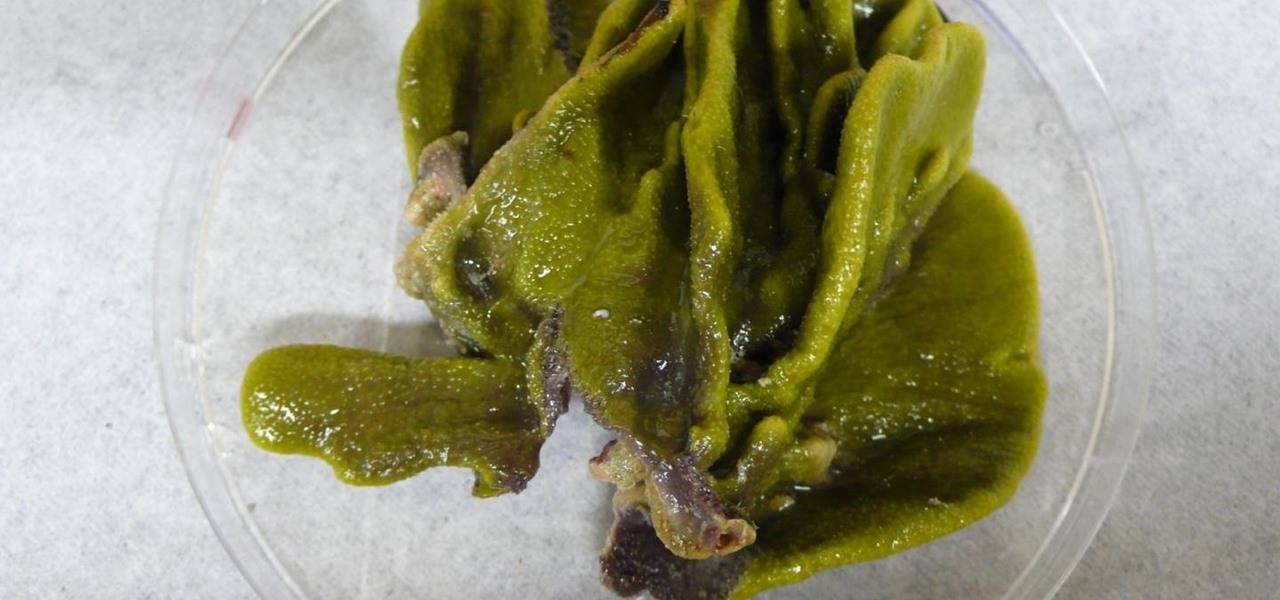
We've worked hard to reduce the flow of toxic chemicals into our waterways, which means no more DDT and other bad actors to pollute or destroy wildlife and our health. But one observation has been plaguing scientists for decades: Why are large quantities of one toxic chemical still found in the world's oceans?
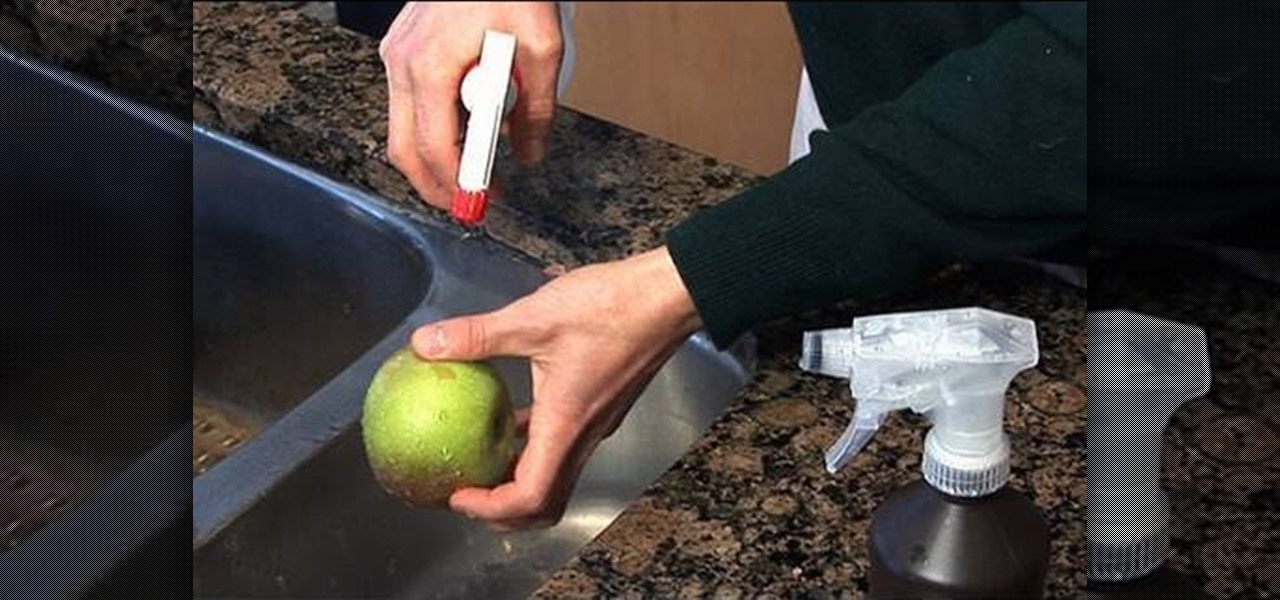
Keeping things clean is very important to prevent food born illnesses. Washing fruit is important. You can take care of many problems by just running them under water. You can use white vinegar and hydrogen peroxide to clean fruit. Start by spraying some white vinegar on the fruit and then a little hydrogen peroxide. After you spray the fruit with white vinegar and hydrogen peroxide rinse it in water and that will wash all the vinegar and peroxide off of the fruit. The vinegar and peroxide wi...

We know the easy thing to do when you desire a fruit topping for your ice cream or dessert is to run to the store and purchase that squeeze bottle of strawberry "jam." But with all the gnarly chemicals and high fructose corn syrup that composes most of these toppings, you're probably getting more artificial gunk than actual strawberries.

You'd think that in the United States we have more of a problem of women wanting to look tan year round than white and pale. But many women actually crave the vampirish pale complexion, and because not all of them are born with it, some turn to whitening/lightening creams. Some women also turn to these creams because they claim to fade dark spots.
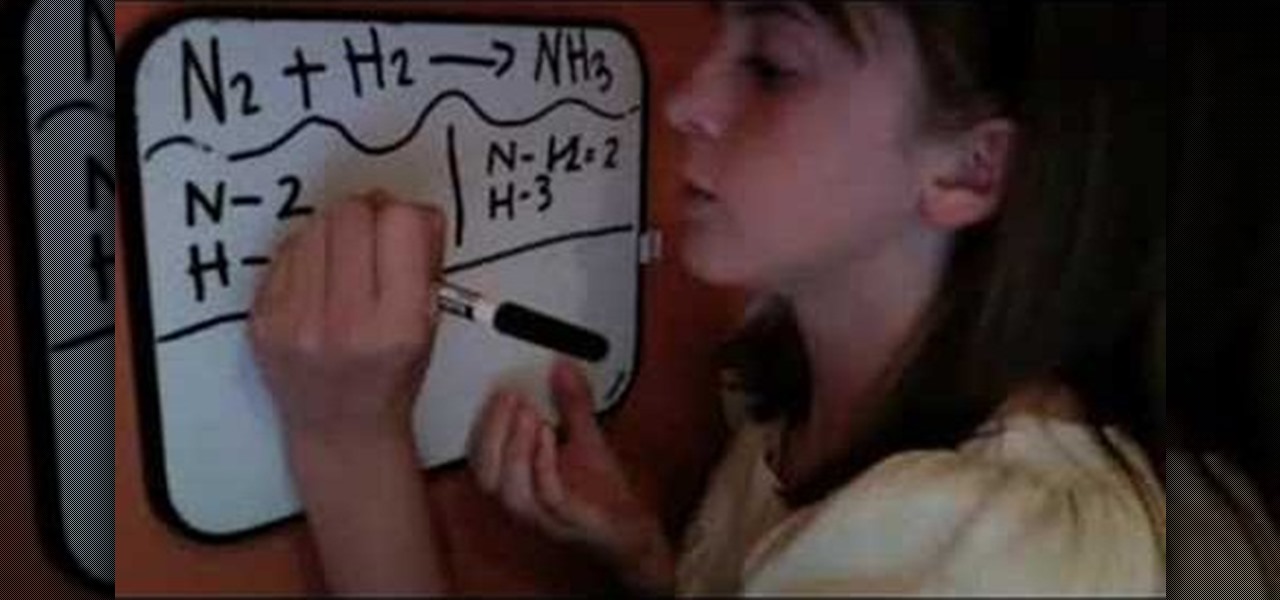
In this video, we learn how to balance a chemical equation. First, take a look at both sides of the equation and figure out how many atoms there are for both. Once you write this out, you will have an idea of how unbalanced it is. Now that you've done this, you need to think about how you can make the equation equal. Look at the first line and then see how many you have to add to one side to make both equal to each other. Then, go to the second line and do the same. When finished, you will ha...
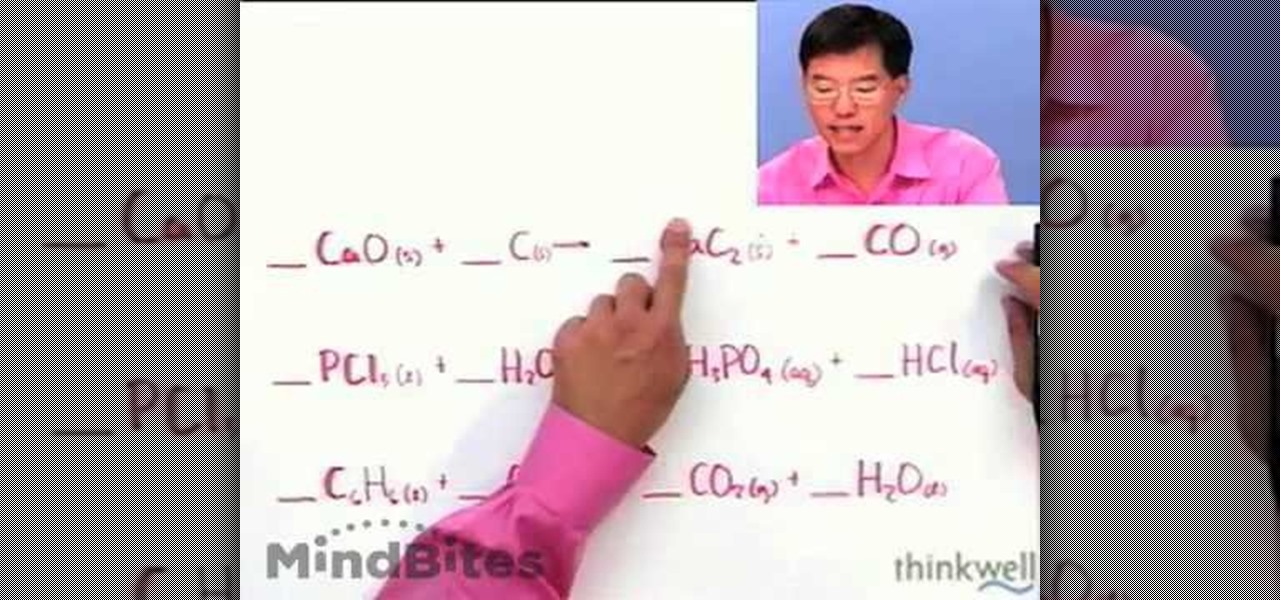
In this video, we learn how to easily balance a chemical equation. In a balanced equation, there should be the same number of atoms on both sides of it. There are no rules that explain how you get a balanced reaction from expression. First, start on the molecule or compound that is the most atomically complex. After you look at this, you can learn how to make the rest of the equation equal to each side. This is a complex process that you must walk through to figure out, but it will result in ...
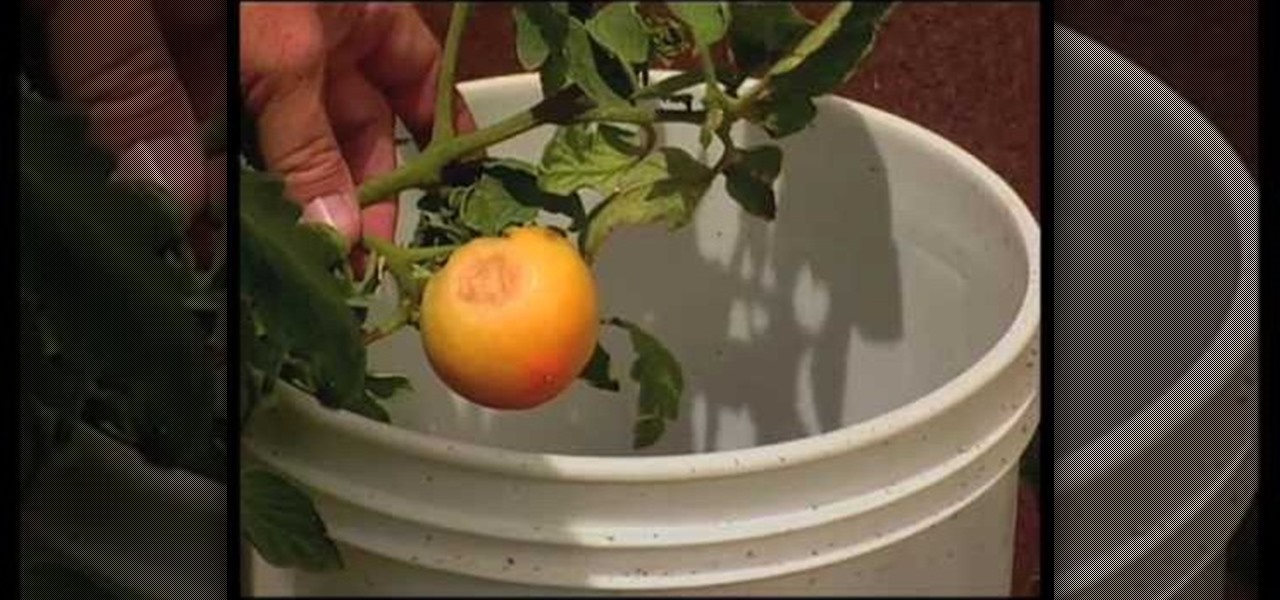
Weeping willows, globe willows, corkscrew willow, cotton wood are all prone to bores than other diseases. They grow in fertile soil with lots of moisture. Never treat tree chemical. Prune as necessary, take out dead diseased limbs, water and fertilize regular. This ensures the tree lasts longer and that the tree is less attractive to insects. Where tomatoes are concerned to avoid sunburn ensure that they are slightly covered with the folding of the plant. High salt level of water or chemicals...
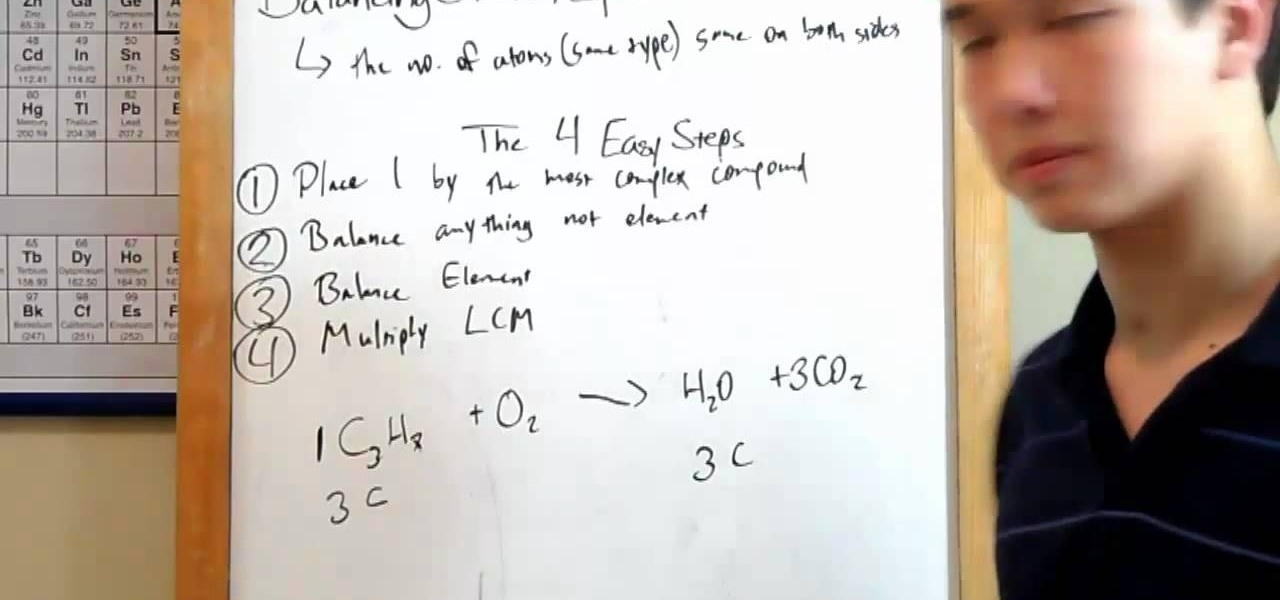
Learn how to balance chemical equations with MyTutorBuddy. Learn about this in this video tutorial. There are four easy steps to do this. Step #1 – place 1 by the most complex compound. Step #2 – balance anything that is not an element. Step #3 – balance the elements. Step #4 – multiply by the lowest common multiple. The 4th step doesn’t always come in to play. The video demonstrates with an equation: C3H8 + O2 -> H2O + CO2. But, this equation is not balanced. Using the 1st three steps, the v...
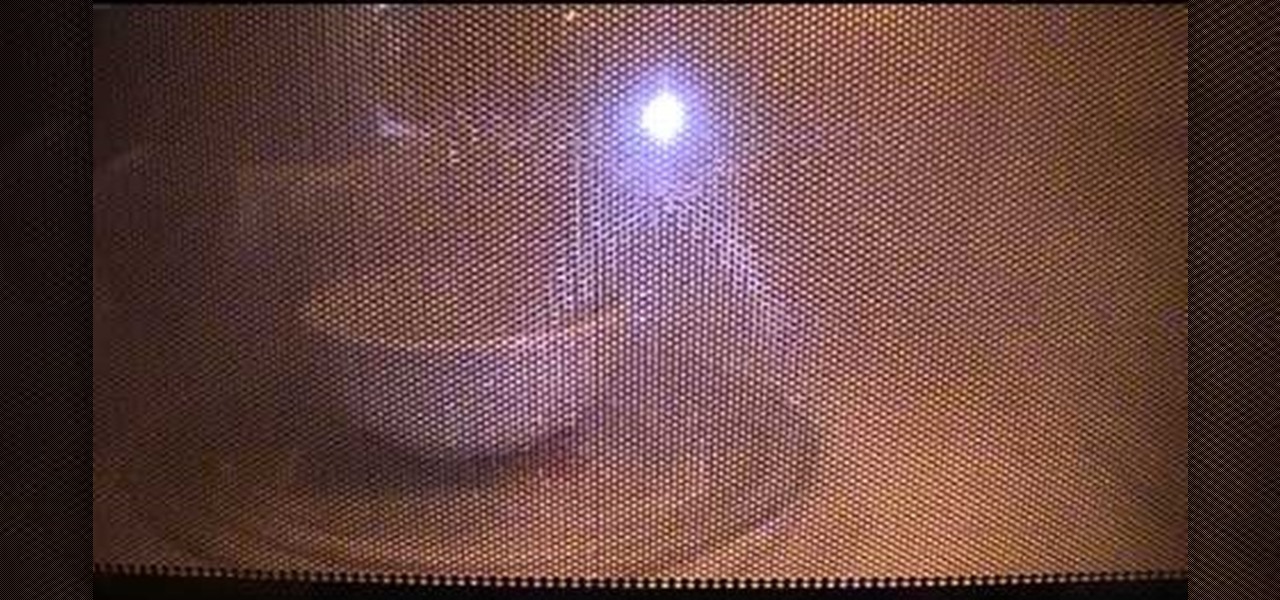
Here's a really good fast easy way to clean your microwave with a bowl of hot water. GREAT TIP! No harsh cleaning chemicals.
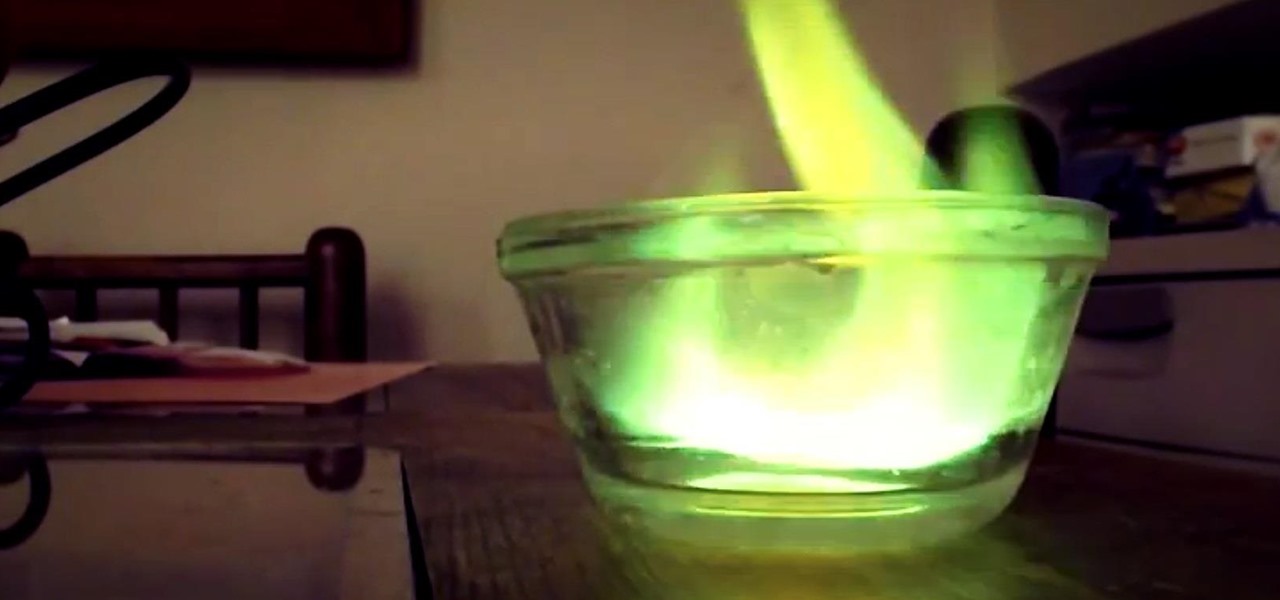
In this guide, you'll learn how to make your own boric acid from borax and other common chemicals to produce a green flame when mixed with methanol.
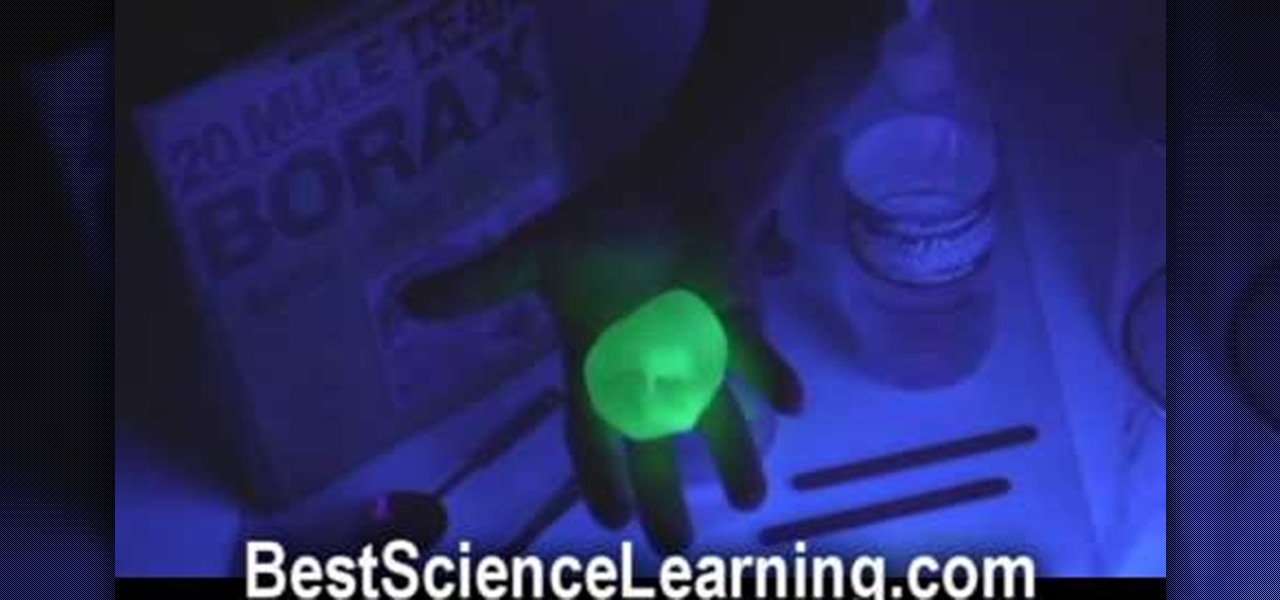
Here's a cool video! By combining two readily accessible liquids, you can make yourself a cool bouncey ball. This how-teaches kids about polymers, chemicals. You'll also learn in this video how to make glow in the dark goo. Just what the world needs!
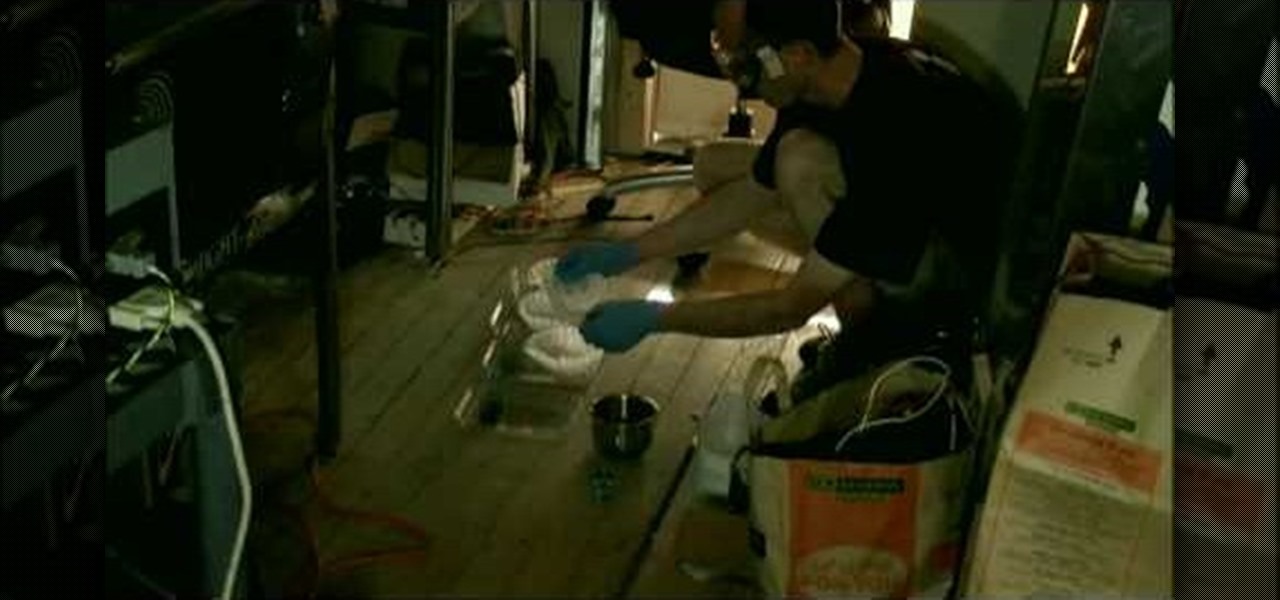
Nitrogen Triiodide is a very powerful contact explosive, but like most fun chemicals is not readily available to the general public cheaply. If you want some and have some chemistry skills, watch this video to learn how to make Nitrogen Triiodide at home out of household ammonia and water purification iodine crystals.

Cockroaches are one of the most durable and and irritating forms of life on Earth. Many turn to toxic chemicals to get rid of them, but that's not very green is it? This video will give you some eco-friendly tips for preventing infestations, trapping insects, and disposing of them once you've caught them. Yes, cockroaches are part of nature. No, that doesn't mean we're not going to kill them.

Learn how to rid your backyard of annoying bugs without exposing your family to chemicals and toxins.
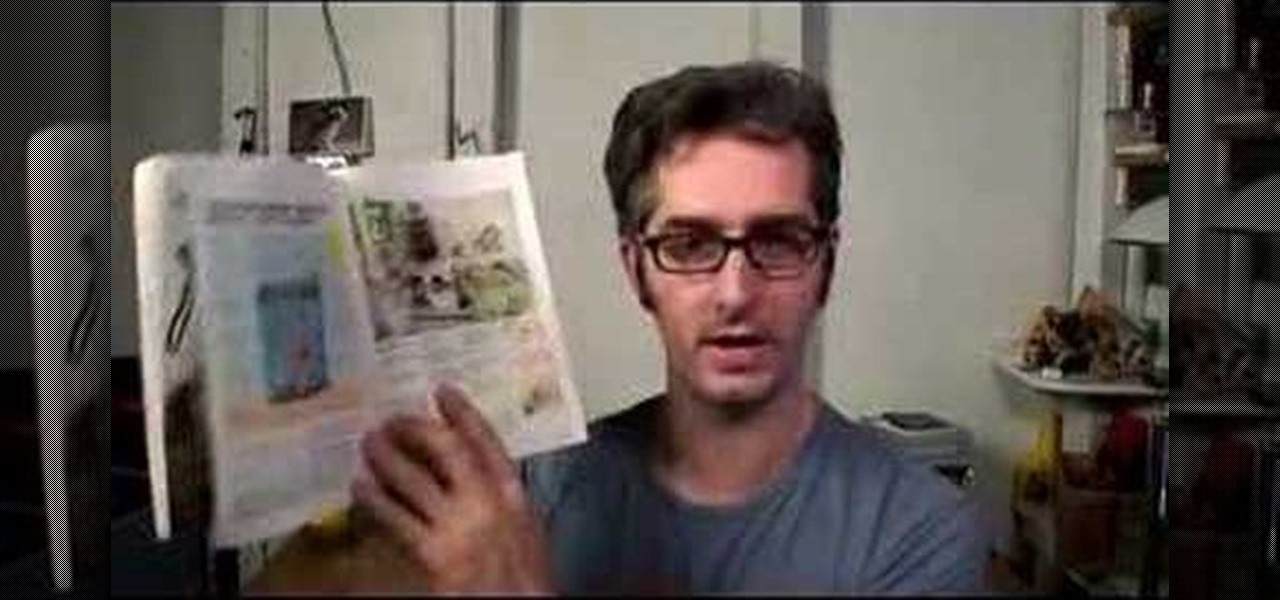
In this video, Bre Pettis from MAKE magazine will show you how to make a tabletop biosphere. You need a jar, aquatic plants, shrimp, amphipods, dechlorination chemicals, and chicled salt.
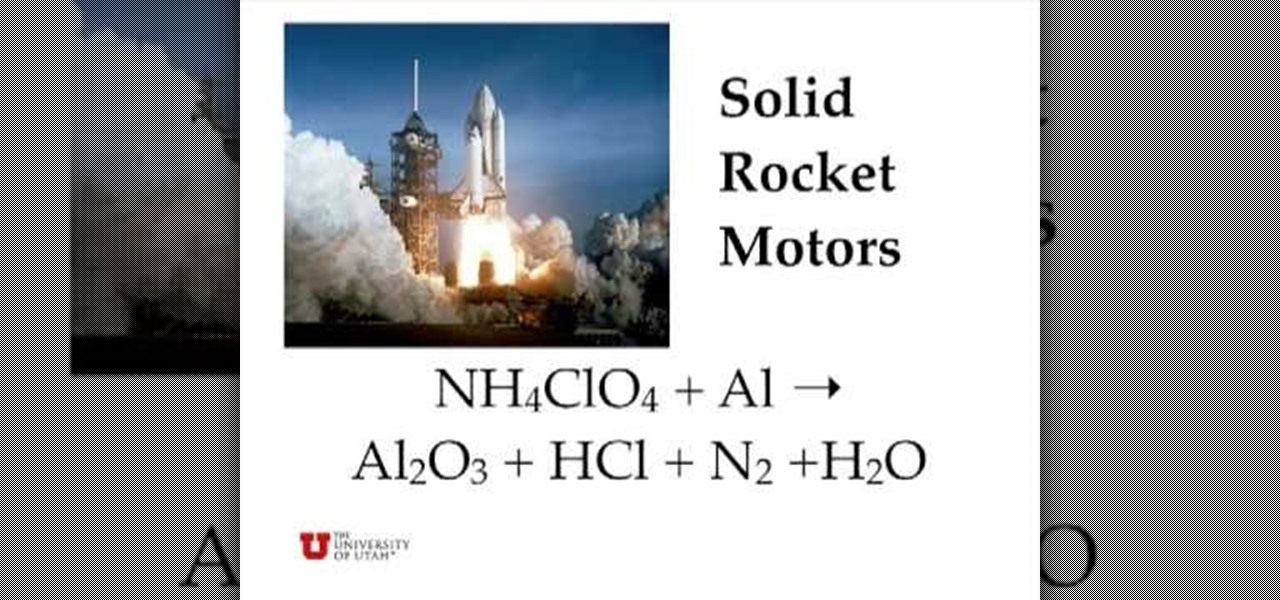
In this video, we learn how to follow three rules to balance chemical equations. The first rule is that you need to start by balancing elements that appear in only one reactant and one product. The second rule is that you need to multiply through by common factors. You must retain equal numbers of atoms of each element on both sides of the equation. The third rule is: if an atom appear in elemental form on one side of the equation, save it for last. Going over the rules of how the balance the...
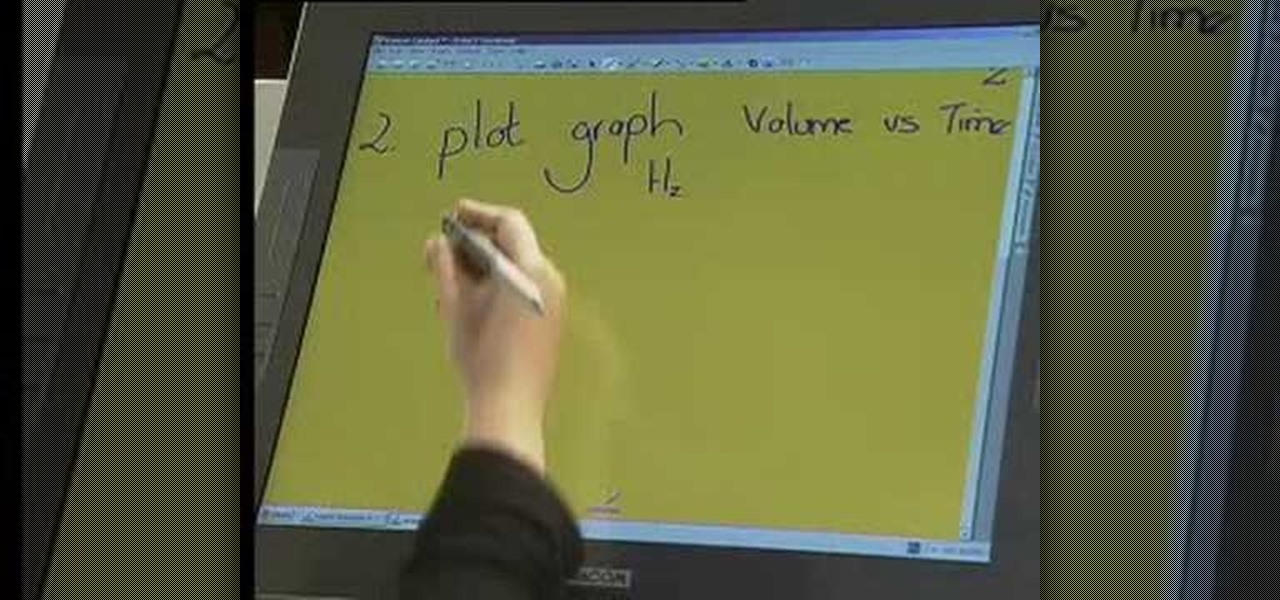
This video tutorial is in the Education category which will show you how to understand chemistry and chemical change. The question here is 10g of Mg ribbon reacts with 0.15 mol decimeter cubed of hydrochloric acid at 25 degree Celsius. What is the balanced equation for this reaction? When magnesium reacts with hydrochloric acid, you will get magnesium chloride and hydrogen. So, the equation will be Mg + 2HCl = MgCl2 + H2. Mg is in group 2 of periodic table and has a valance of 2, whereas Cl i...
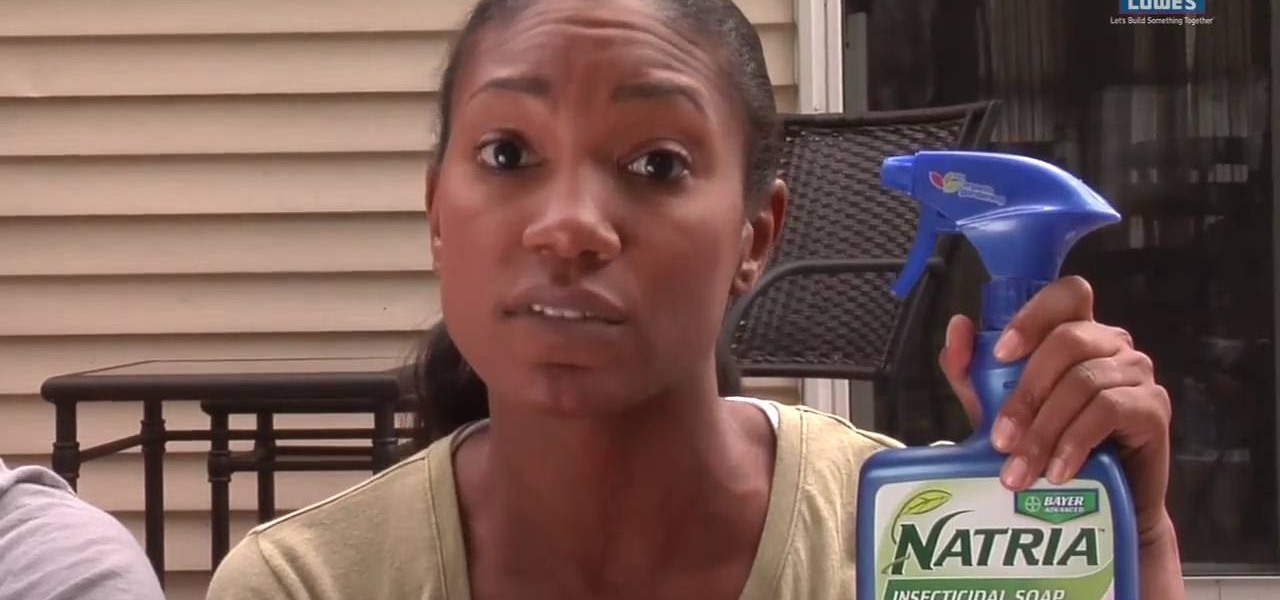
You've worked hard to get your garden in shape— the tilling, the planting, the watering, so when pests and weeds threaten your garden, you'll want to take action. But if you don't want to use chemicals, there are effective organic alternatives. Lowe's has the advice you need for keeping those unwanted enemies out.

In this video, we learn how to play "I Don't Love You" by My Chemical Romance. The basic chords of this song are: C, C suspended, C7, A minor, G suspended, and many others. Once you learn how to do the basic chords in each of the different verses of the song, you will be able to star to play in one fluid song. The fret of the song is tricky to play, so this may take some getting used to. Once you have these figured out, start to add in the lyrics as you go between the different verses. When f...
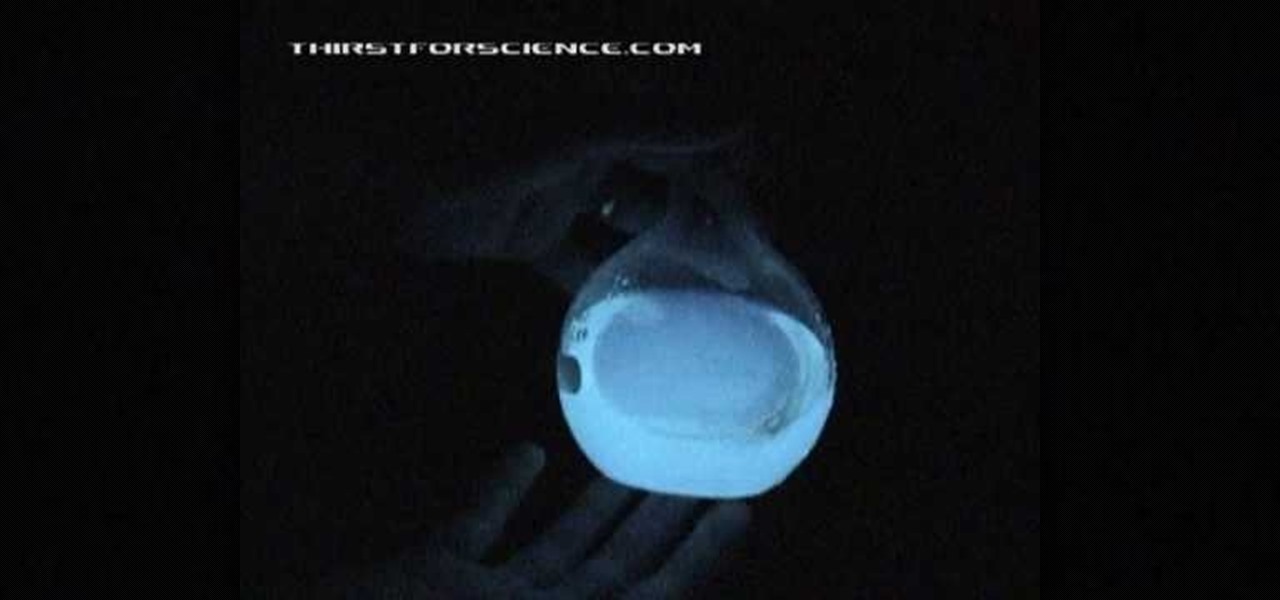
In this how to video, you will learn about Chemiluminescence and the oxidation of Luminol. The first solution is Luminol and NaOH. The second is K3 and H202. Luminol is used to detect blood in crime scenes. It reacts with Iron in Hemoglobin. As you can see in the example, it illuminates the chemicals in the dark. This is why it is very useful for crime scenes. It can be used even if the blood is not visible with day light. Thus, it is an invaluable chemical in the name of science and justice....
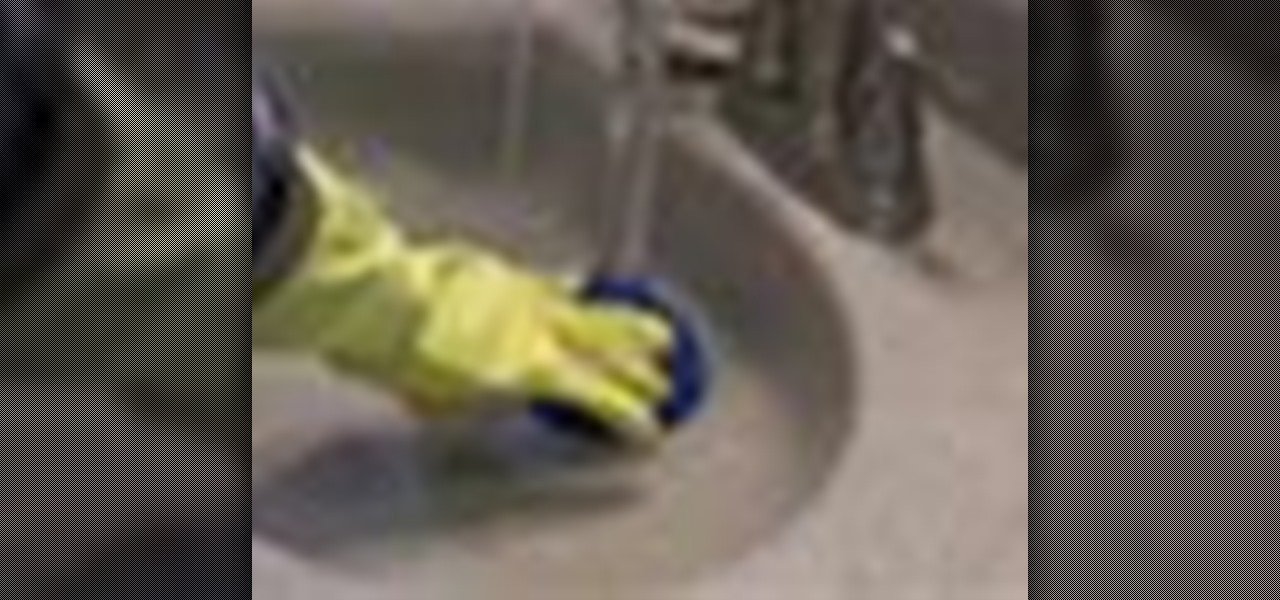
Don't call a pricey plumber! Anyone with a few tools can unclog a drain -- without even resorting to those strong, toxic chemicals. Most of the time, anyway. You will need baking soda, vinegar, rubber gloves, cleaning rags or duct tape, a rubber plunger, a plumber's snake, petroleum jelly, a bucket or pan, and a length of hose. WARNING: Do not try this if you have already used a commercial drain opener, as it can create harmful fumes.
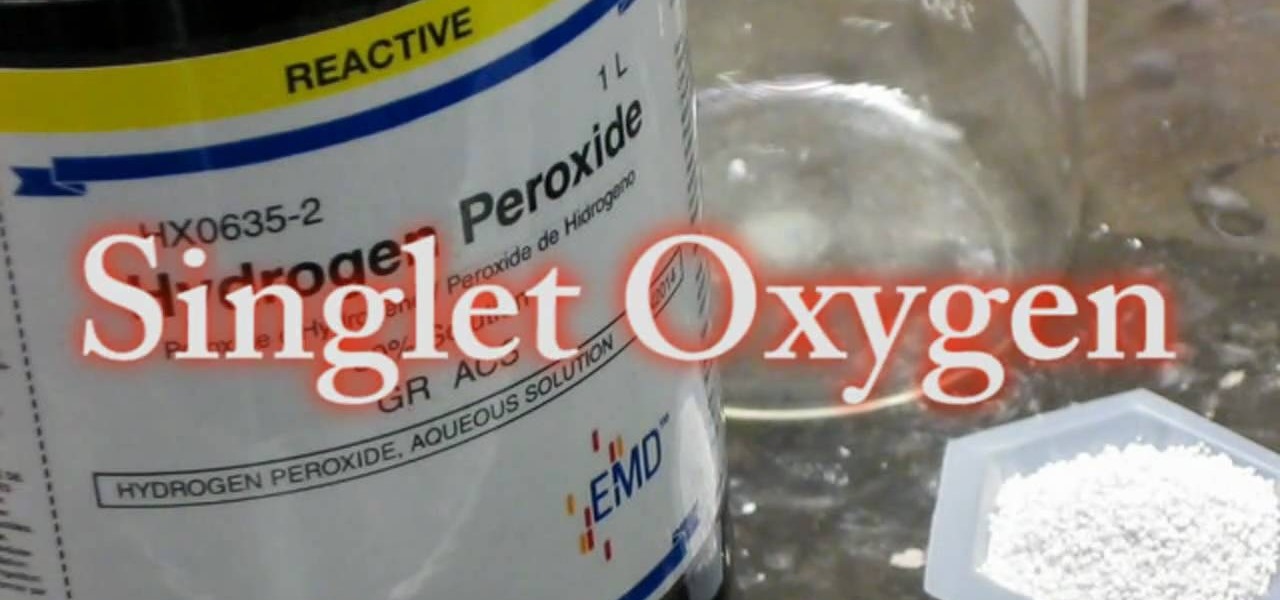
Watch this science video tutorial from Nurd Rage on how to make a chemiluminescent reaction with home chemicals. Make a chemiluminescent singlet oxygen red light pulse from two simple chemicals almost anyone can buy: pool chlorine and hydrogen peroxide.
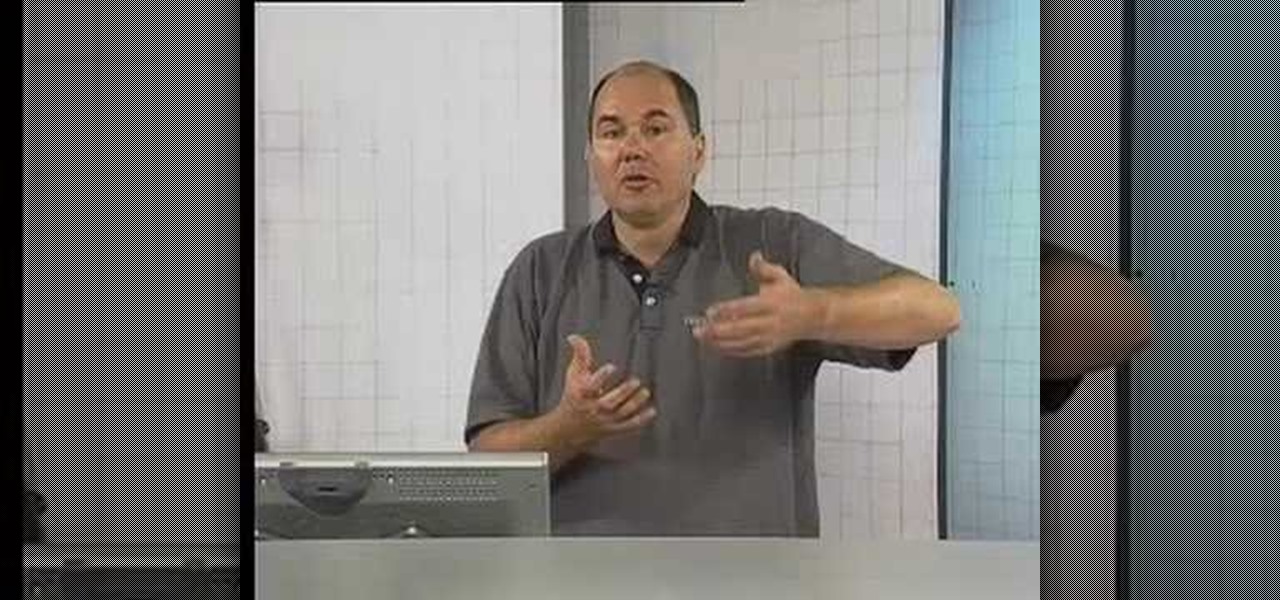
This is a video tutorial in the Education category where you are going to learn how to use and understand chemical equilibrium in Chemistry. This video answers a question about the contact process. This is a process by which sulphuric acid is made where they take sulphur, react it with oxygen to make sulphur dioxide and react it with more oxygen to make sulphur trioxide. The equation here is 2SO2 + O2 will give us 2SO3. This reaction is exothermic, that means it will give out energy in the fo...